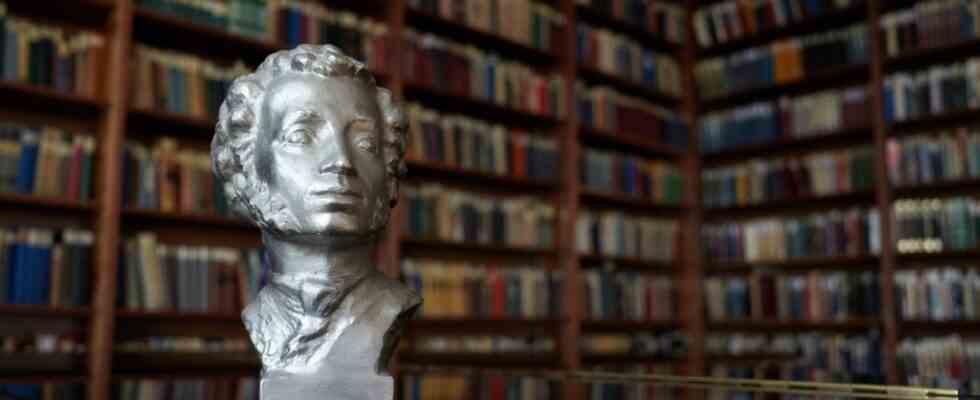“How do you think we cried here when this all started.” Tatjana Erschow, director of the Munich Tolstoy Library, means the war in Ukraine, “Slavs kill Slavs”. She constantly feels the war in her everyday work since the library has been regularly visited by Ukrainian refugees.
As great as the tensions between cultures in Ukraine are as a result of the war, as much as the Ukrainian language has gained in importance there and as much as Russian culture is increasingly rejected, there are still many Russian-speaking refugees who are currently in Munich in the Tolstoy Library (not just) books. Whether the contact between Russians and Ukrainian refugees in the library is always harmonious? Yes, since politics is left out here, it works well without exception, says Erschow.
It is a completely new situation for the traditional library, which moved within Munich a few months ago and is now based in Neuhausen. To briefly recap the founding history: Leo Tolstoy’s youngest daughter, Alexandra, founded the “Tolstoy Foundation” in the USA after the Second World War, which supported Russian emigrants. Practical life support and education should work together here. Several million Russians also lived in Germany in the post-war period, and the Tolstoy Foundation was active here with educational programs and humanitarian aid. In the context of the foundation’s activities, the Munich library was founded in 1949.
Initially, the inventory was built up with donations
In the beginning, the stock of the library was built up mainly through donations, today the library receives support from the city and the federal government. One thing, however, never happened, Erschow clarifies: support from the Russian state. From the start, the facility was intended to remain non-political, serving only cultural and social purposes. The inventory now includes more than 47,000 books, making it the largest non-governmental Russian library in Western Europe. It mainly houses original Russian works, as well as translations of world literature. The heart of the collection is the exile literature, some valuable first editions, such as “Lolita” signed by Nabokov.
Not only the books are in demand: the events and the advisory services are also popular, says Erschow. Literature clubs, readings, film screenings or concerts should make it possible to cultivate Russian culture abroad. Or get to know each other: There are certainly visitors without a Russian background, says Erschow. Conversely, integration into German culture should also be promoted, for example through German courses.
The advice center helps with almost all problems
What problems does the counseling center help with? Almost everyone. One sees oneself as a kind of initial counseling center to which one can come with “practical, social, mental, physical and economic difficulties”. She doesn’t like the word, but it’s about being as “low-threshold” as possible, explains Erschow. Because many who come are denied specialized counseling services due to various inhibitions – linguistic, but also cultural. It is often simply a matter of translating German mail and explaining what to do with it. Or just about arranging specialized advice after the first talks. At the moment, the counseling service is meeting with great demand among the Ukrainian arrivals, says Erschow.
Erschow has been in charge of the library since the early 1990s. When she started at the Tolstoy Library after studying Slavic Studies and Comparative Literature, a new cultural world opened up to her, she says. The fact that the facility has not faced any hostility and has not lost demand is certainly not least due to the noticeable openness and enthusiasm with which Tatjana Erschow runs the facility. No matter what the Russian government does, Ershov says, she cannot simply dismiss the fact that she feels Russian and loves the rich Russian culture. The art lies in bringing hostile camps together peacefully, as can be seen.
Tolstoy Library, Aldringenstr. 4, Tel. 089/ 299775, www.tolstoi.de

